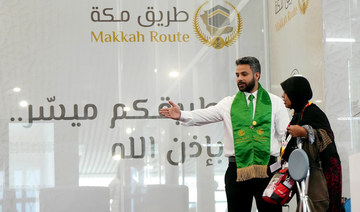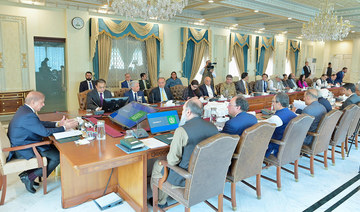ISLAMABAD: Pakistan’s central moon sighting committee has announced, on Sunday, after sighting the new moon crescent that first day of Eid Al-Adha will be on Wednesday, Aug. 22.
Central Ruet-i-Hilal Committee of Pakistan’s Chairman Mufti Muneebur Rehman announced saying confirmed reports of sighting moon were received from many parts of the country.
The announcement was made on, Sunday night, after the meetings of the moon-sighting committee.
Pakistan declares Eid Al-Adha on August 22
Pakistan declares Eid Al-Adha on August 22
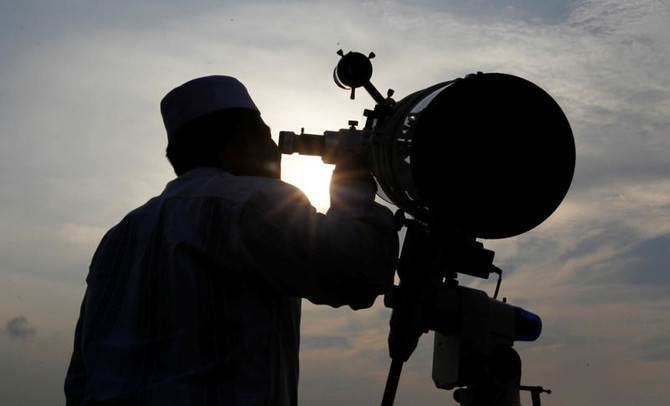
- The announcement was made on Sunday night after the meetings of the moon-sighting committee
- Central Ruet-i-Hilal Committee of Pakistan’s Chairman confirmed reports of sighting moon were received from many parts of the country
‘No illegal Afghan nationals,’ seminary board declares as Pakistan’s Sindh plans crackdown
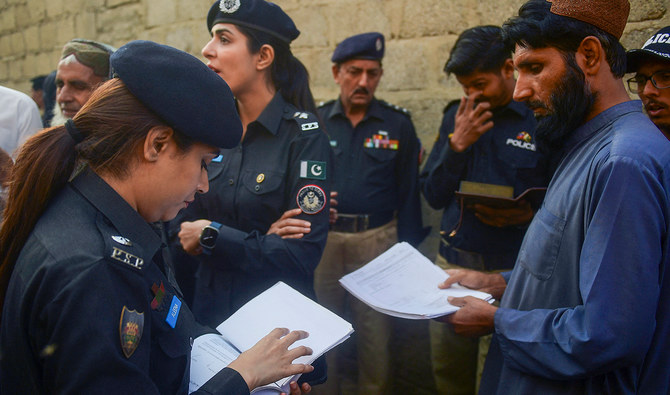
- The province took the decision after a security meeting was told a madrasah teacher was involved in 2023 KPO attack
- Independent analysts say Afghans involve in militant violence arrive from their country and are not residents of Pakistan
KARACHI: Pakistani seminaries have stopped giving admission to Afghan nationals except for those who approach them with the interior ministry’s approval, a top seminary board official informed Saturday, after the country’s southern Sindh province announced to deport illegally enrolled foreigners in seminaries and other educational institutions.
The decision was taken after the province’s apex committee, the top security forum, was briefed earlier this week that one of the individuals involved in the 2023 Karachi Police Office (KPO) attack was a madrasah or seminary teacher. It was also pointed out during the meeting that a number of unregistered foreigners were studying in such institutions in different parts of Sindh.
The 2023 attack was launched by militants, armed with guns and grenades, who stormed the building, leading to a prolonged gunfight with security forces. This confrontation resulted in casualties among both police officers and civilians, along with substantial damage to the police facility. The KPO attack was claimed by the banned militant network Tehreek-e-Taliban Pakistan (TTP), whose leadership is reportedly based in neighboring Afghanistan.
Speaking to Arab News, Maulana Talha Rehmani, spokesperson of Wafaq ul Madaris Al-Arabia Pakistan, said local seminaries had stopping enrolling Afghan nationals almost a year ago.
“Our madrasah used to offer admission to Afghan refugees who possessed proof of registration cards,” he said. “But that also stopped a year ago.”
“Different Pakistani intelligence agencies frequent seminaries for information,” he continued. “Nothing is hidden. The madrasas have a proper system of registration. We are ready to cooperate.”
Rehmani said the authorities had not shared any details with them about the identity of the seminary teacher involved in the KPO attack.
However, Dr. Aamir Tuaseen, former chairman of Pakistan Madrasah Education Board, noted seminaries lacked any coherent policy to develop “a monitoring system” for students.
“Admissions are granted to students without proper background checks,” he told Arab News. “The admission authorities also overlook which province or country does a student belong to, especially in case of Afghanistan.”
He added that boards of religious seminaries should take it upon themselves to grant admission only to students from the city where the seminary is located.
“This will help gather information about the background of every student,” he said, noting the current directorate of religious education did not seem to be fully functional.
The provincial information minister, Sharjeel Inaam Memon, did not respond to a request for comment, but a police official told Arab News on condition of anonymity the madrasah teacher involved in the KPO attack was a Pakistani national.
“The madrasah teacher was identified as Aryadullah who worked with a Karachi-based seminary,” the official said. “He was Pakistani citizen.”
Ihsanullah Tipu Mehsud, a security expert who manages an online publication, The Khorasan Diary, said the Afghan nationals involved in militant violence in Pakistan mostly arrived from the neighboring state and were not residents of Pakistan.
“The involvement of Afghan nationals in acts of terrorism cannot be ignored, but in my opinion, the government’s assertion is overstated,” he said. “The individuals involved in recent acts of terrorism are primarily those who have arrived directly from Afghanistan to carry out attacks rather than Afghan refugees.”
He emphasized any measures related to the expulsion of Afghan students from seminaries should not be driven by a reactionary approach.
“It is critical to implement gradual [seminary] reforms in accordance with the national action plan,” Mehsud said.
Saudi business delegation to arrive in Pakistan Sunday to explore investment opportunities — minister
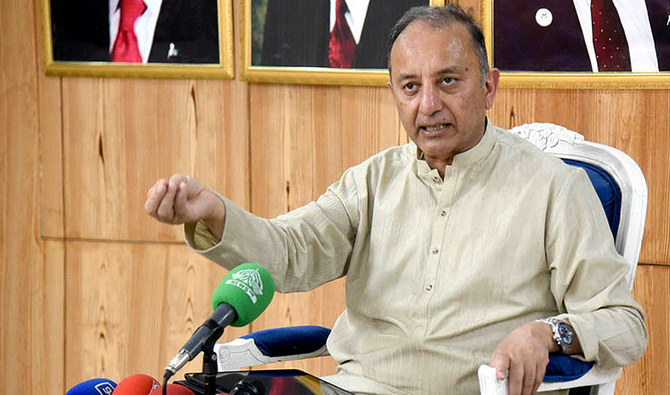
- Musadik Malik says Saudi investment will mainly benefit small technology firms run by young Pakistani students
- He informs the two sides have also discussed a new refinery for export purposes that will help with foreign revenue
ISLAMABAD: A high-level Saudi business delegation is scheduled to arrive in Pakistan tomorrow to explore investment opportunities in various economic sectors by holding meetings with private sector organizations, said Federal Minister for Petroleum Musadik Malik during a media briefing held in Lahore on Saturday.
The two countries have witnessed a flurry of official visits in recent weeks, with Saudi Foreign Minister Prince Faisal bin Farhan traveling to Islamabad earlier in April, before Prime Minister Shehbaz Sharif’s two-day visit to the kingdom to attend a World Economic Forum meeting and hold a number of meetings.
“The Saudi Deputy Investment Minister is visiting Pakistan tomorrow,” said Malik, who is also the focal person for Saudi-Pak bilateral collaboration. “He is bringing representatives from 30 to 35 companies whose CEOs are coming here.”
The Pakistani minister maintained his country had always cherished cordial ties with the kingdom, though it had not managed to turn this “relationship of friendship into a relationship of stability and progress.”
He said Pakistan mostly discussed its financial concerns with the Saudi authorities and requested their support. However, the present government wanted to change that by focusing its bilateral conversations on mutually beneficial progress and development, not aid and assistance.
The minister said the two sides discussed a new refinery project during the recent engagements that would be used for export purposes to earn foreign revenue. Additionally, food security was also discussed to further strengthen Pakistan’s agricultural sector.
He informed that Prime Minister Sharif wanted the country’s “private sector to take the lead on this path to progress.”
“That is why Saudi investors have been invited to come here,” he continued. “They will sit with Pakistani companies and figure out ways to connect the Pakistani talent with the capital and investment needed at the international level for the IT revolution.”
Malik said the bilateral collaboration would primarily benefit small businesses, particularly the technology companies established by young students who were likely to get significant amount of investment from Saudi entrepreneurs.
He expressed optimism that chemical, energy and agricultural companies would also gain advantage from the ongoing bilateral collaboration between the two sides.
Pakistan committee discusses development of border areas in inaugural session
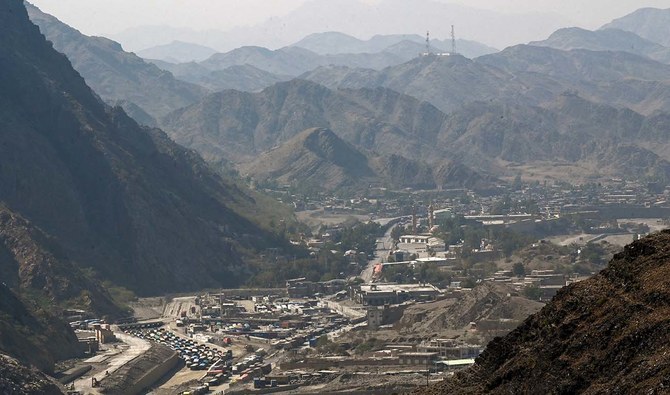
- The committee was formed to devise comprehensive strategies for holistic development in Pakistan’s border regions
- Key topics that came under discussion at the inaugural session included tariff rationalization, employment creation
ISLAMABAD: A high-level committee tasked with development of Pakistan’s border regions on Saturday held its inaugural session in Islamabad to discuss the challenges facing communities based in the country’s frontier regions, the Pakistani commerce ministry said.
The inaugural session of the committee, which was formed to devise comprehensive strategies for holistic development in these areas, was presided over by Commerce Minister Jam Kamal Khan, according to the ministry.
Key topics that came under discussion at the meeting included tariff rationalization and employment creation, reflecting the committee’s commitment to addressing border communities’ challenges.
“The committee aims to present its recommendations to the Prime Minister within 10 days, signaling a promising start to collaborative efforts for socio-economic development in the region,” the commerce ministry said in a statement.
Pakistan shares a long, porous border with Iran and Afghanistan, with people live along it relying on cross-border trade with little or no government tariffs, quotas, subsidies or prohibitions.
Islamabad last year announced restrictions on the informal trade to discourage smuggling of goods and currency in order to support the country’s dwindling economy.
Pakistan’s trade with China mostly takes place through formal channels, while the country’s trade ties with India, another neighbor it shares border with, remain suspended since 2019 over the disputed region of Kashmir.
Pakistan records ‘wettest April’ in more than 60 years — weather agency
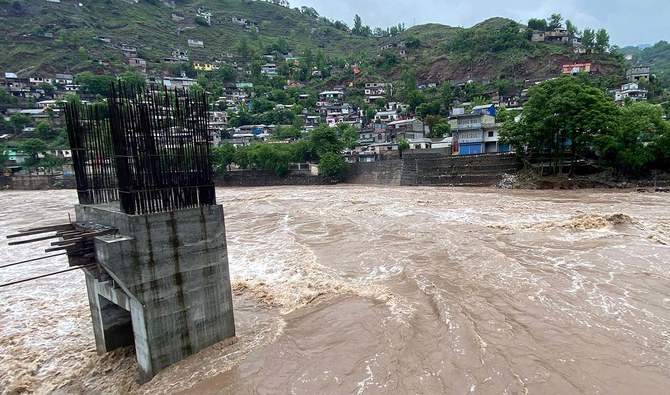
- Pakistan’s metrology department says April rainfall was recorded at 59.3 millimeters, ‘excessively above’ the normal average of 22.5 millimeters
- There were at least 144 deaths in thunderstorms and house collapses due to heavy rains in what the report said was the ‘wettest April since 1961’
ISLAMABAD: Pakistan experienced its “wettest April since 1961,” receiving more than twice as much rain as usual for the month, the country’s weather agency said in a report.
April rainfall was recorded at 59.3 millimeters, “excessively above” the normal average of 22.5 millimeters, Pakistan’s metrology department said late Friday in its monthly climate report.
There were at least 144 deaths in thunderstorms and house collapses due to heavy rains in what the report said was the “wettest April since 1961.”
Pakistan is increasingly vulnerable to unpredictable weather, as well as often destructive monsoon rains that usually arrive in July.
In the summer of 2022, a third of Pakistan was submerged by unprecedented monsoon rains that displaced millions of people and cost the country $30 billion in damage and economic losses, according to a World Bank estimate.
“Climate change is a major factor that is influencing the erratic weather patterns in our region,” Zaheer Ahmad Babar, spokesperson for the Pakistan Meteorological Department, said while commenting on the report.
While much of Asia is sweltering dure to heat waves, Pakistan’s national monthly temperature for April was 23.67 degrees Celsius (74 degrees Fahrenheit) 0.87 degrees lower than the average of 24.54, the report noted.
Fire erupts at Karachi garment factory, no loss of live reported
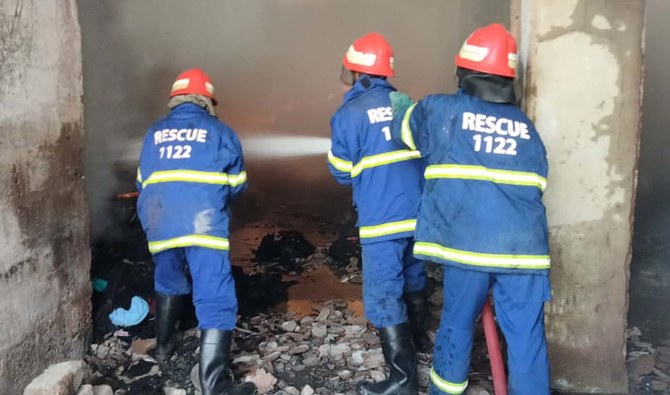
- The biggest Pakistani city, known for poor fire safety protocols, witnesses hundreds of such incidents annually
- In November last year, a blaze at a shopping mall in Karachi killed around a dozen people and injured several others
KARACHI: A fire broke out at a garment factory in the southern Pakistani city of Karachi on Saturday, rescue officials said.
The blaze erupted on the ground floor of the garment factory in Zarina Colony in the New Karachi area, according to Rescue 1122 service.
“One fire truck is actively participating in the operation,” a Rescue 1122 spokesperson said, adding that another fire tender has been called to the site.
No loss of life has been reported in the wake of the fire.
Karachi, Pakistan’s largest city and the main commercial hub, is home to hundreds of thousands of industrial units and some of the tallest buildings in the South Asian country.
The megapolis, known for its fragile firefighting system and poor safety controls, witnesses hundreds of such incidents annually.
In Nov., a blaze at a shopping mall killed around a dozen people and injured several others. In April last year, four firefighters died and nearly a dozen others were injured after a fire broke out at a garment factory, while 10 people were killed in a massive fire at a chemical factory in the city in August 2021.
In the deadliest such incident, 260 people were killed in 2012 after being trapped inside a garment factory when a fire broke out.




